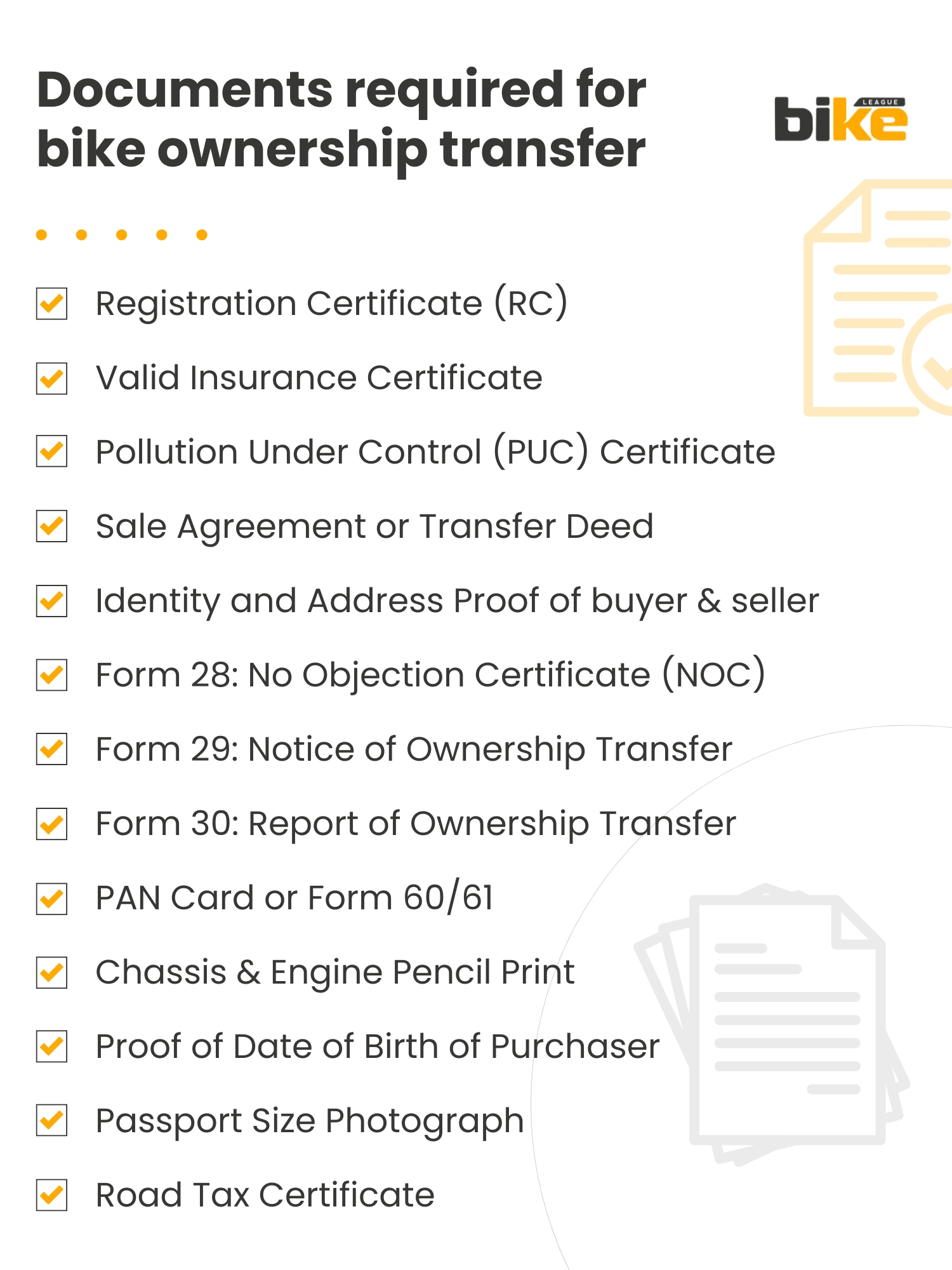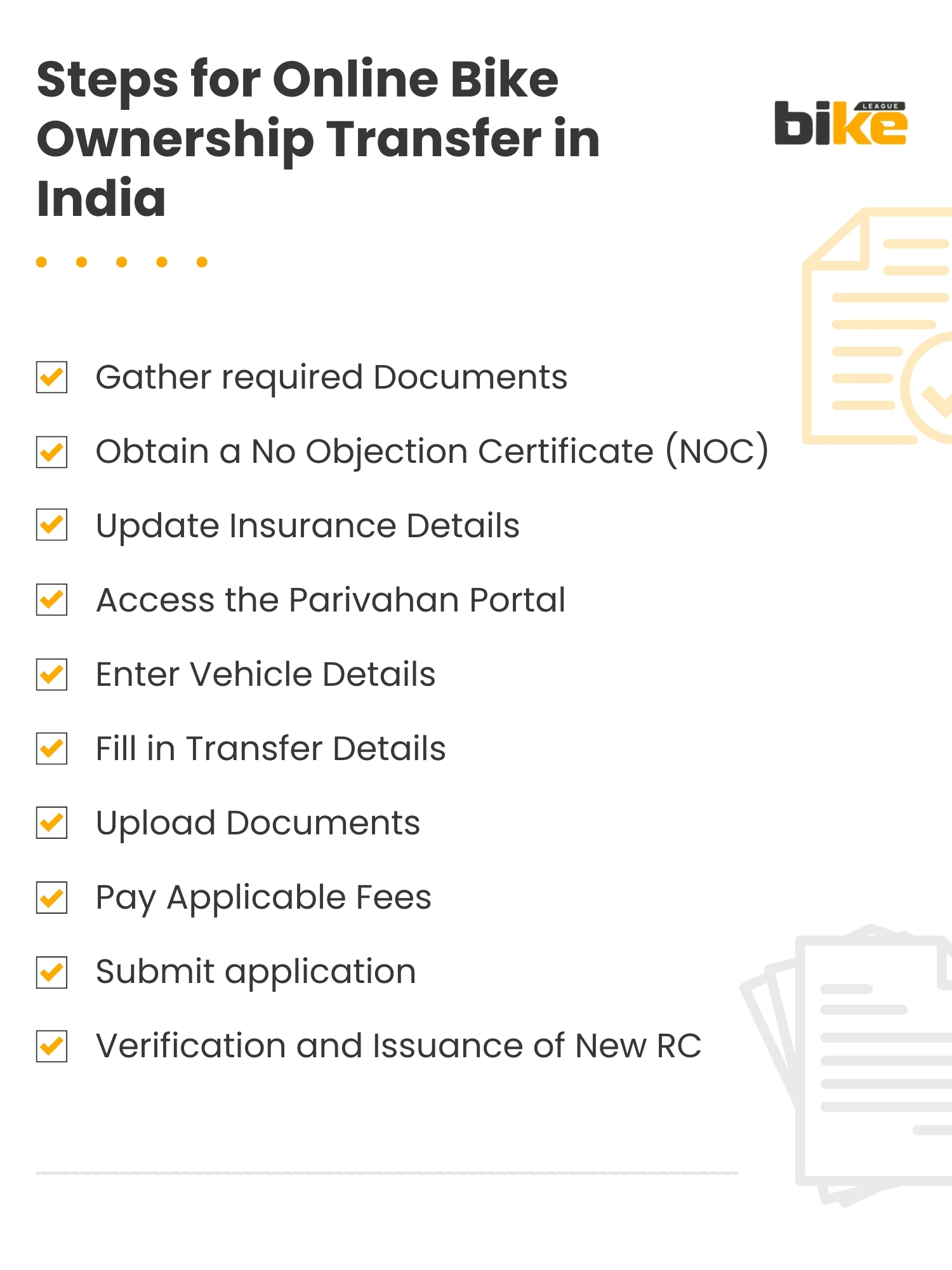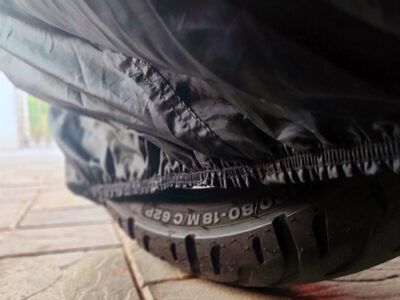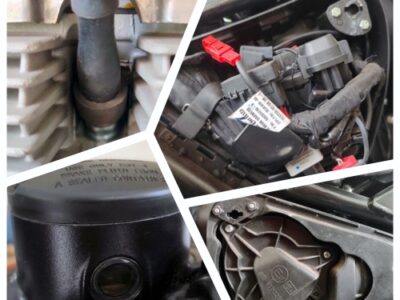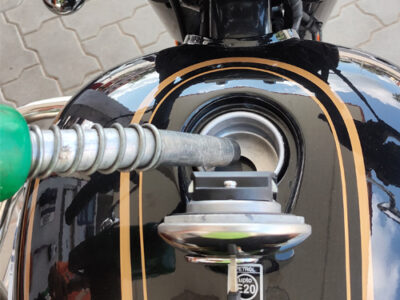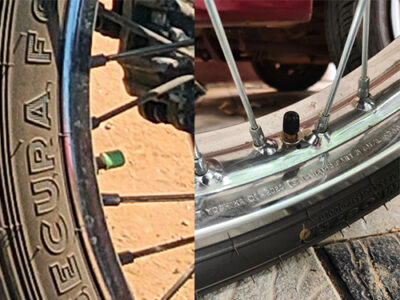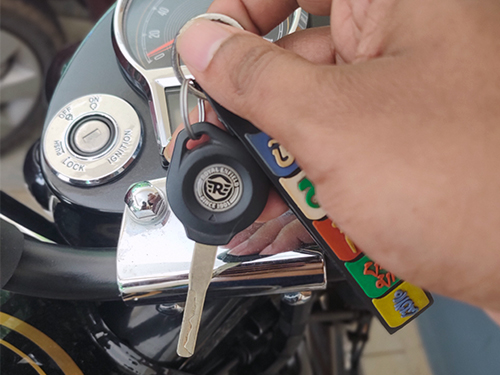
|
Getting your Trinity Audio player ready...
|
Long story short: Discover the essential documents for bike rc transfer in India. Ensure a hassle-free process by preparing all necessary paperwork in advance.
In India, bike ownership transfer is a crucial legal process that ensures the new owner has complete rights over the vehicle. Whether buying, selling, or inheriting a bike, understanding the steps and requirements for ownership transfer is essential for a smooth transition.
Required documents for bike ownership transfer
1. Registration Certificate (RC)
The Registration Certificate is a fundamental document for a bike transfer that proves the bike’s registration. It must be in the seller’s name and free from encumbrances or legal disputes. This document is essential for the transfer process. Submit the same to the Regional Transport Office (RTO) during ownership transfer.
2. Valid Insurance Certificate
A valid insurance certificate is mandatory at the time of transfer. It ensures that the bike is insured and covers the desired duration. To avoid issues, the insurance policy must be updated with the new owner’s details.
3. Pollution Under Control (PUC) Certificate
The PUC certificate confirms that the bike meets the prescribed emission standards. It is a legal document to check and obtain, especially when buying a used motorcycle.
4. Sale Agreement or Transfer Deed
A legally binding sale agreement or transfer deed outlines the terms and conditions of the sale, including the agreed-upon price, date of transfer, and any additional clauses. This document confirms the ownership transfer from the previous owner to the new one.
5. Identity and Address Proof
At the time of the bike transfer, the buyer and seller must provide valid identification documents such as a driver’s license, Aadhaar card, or passport and proof of address, such as a utility bill or rental agreement. This is necessary to verify the identities of both parties involved in the transfer.
6. Forms 28, 29, and 30
- Form 28: No Objection Certificate (NOC) is required when a vehicle is transferred from one state to another. The seller must submit three copies of this form.
- Form 29: Notice of Ownership Transfer, used to notify the RTO of the sale. The seller needs to submit two copies of this form.
- Form 30: Report of Ownership Transfer, required to complete the transfer process. Two copies of this form must be submitted to the RTO.
7. Additional documents for special cases
- On Death of Owner: If the vehicle owner has passed away, additional documents such as the death certificate, original RC, and a Certificate of Succession are required for a bike transfer. Form 31 is also necessary in this case.
- For Financed Vehicles: A No Objection Certificate (NOC) from the loan provider is required if the bike was financed.
8. Other necessary documents needed for a bike transfer
- PAN Card or Form 60/61: The seller and purchaser must verify financial transactions.
- Chassis & Engine Pencil Print: This is often required for verification purposes.
- Proof of Date of Birth of Purchaser: To ascertain the age of the new owner.
- Passport Size Photograph: A recent photograph of the purchaser may be required.
- Road Tax Certificate: It is necessary to confirm that all road taxes have been paid by the previous owner.
Crucial things to note during the transfer of bike ownership In India
- No Objection Certificate (NOC): Obtain a NOC from the RTO and, if applicable, from the bank if the bike is financed. This certificate confirms no pending dues or legal issues.
- Insurance Transfer: Ensure the bike’s insurance policy is updated with the new owner’s details to avoid penalties.
- Outstanding Dues: Settle any exceptional loans or insurance claims before initiating the transfer.
- State-Specific Rules: Stay updated with the latest RTO rules, as they can vary by state and change over time.
Steps for Online Bike Ownership Transfer In India
1. Gather Required Documents
Before initiating the bike transfer process, ensure you have all the necessary documents. These typically include the original Registration Certificate (RC), a valid insurance policy, a Pollution Under Control (PUC) certificate, identity and address proofs of the buyer and seller and passport-sized photographs.
Additionally, Forms 29 and 30, which are essential for the transfer, should be filled and signed by both parties.
2. Obtain a No Objection Certificate (NOC)
Suppose the bike is registered in a different state or pending dues. In that case, you must obtain a No Objection Certificate (NOC) from the Regional Transport Office (RTO). This certificate confirms no legal or financial liabilities are present with the vehicle.
3. Update Insurance Details
Updating the bike’s insurance policy to reflect the new owner’s details is crucial. This step ensures that the insurance coverage continues without any legal issues.
4. Access the Parivahan Portal
Visit the Parivahan portal to initiate the online transfer process. This government platform facilitates various vehicle-related services, including ownership transfer.
5. Enter Vehicle Details
Log in to the portal, enter your vehicle registration and chassis numbers, and click on the ‘Transfer of Ownership’ option to proceed.
6. Fill in Transfer Details
Select the “Transfer of Ownership” service and fill in the required details, including information about both the buyer and seller. Ensure all details are accurate to avoid any delays in processing.
7. Upload Documents
Upload scanned copies of the necessary documents, such as the RC, insurance certificate, PUC certificate, and identity proofs. Ensure that all documents are clear and legible.
8. Pay Applicable Fees
Review the fee panel and pay the required fees online using a credit card, debit card, or net banking. The costs may vary depending on the RTO and the state.
9. Submit application
After completing the payment, submit the application form. The RTO will process the application and issue a new RC in the buyer’s name.
10. Verification and Issuance of New RC for a Bike Ownership Transfer
The RTO will verify the submitted documents and, if necessary, inspect the vehicle. The next step is to issue a new Registration Certificate in the new owner’s name, which also marks the completion of the entire process.
Steps for Offline Bike Ownership Transfer In India
1. Gather Required Documents
Before visiting the RTO, collect all necessary documents. These include the original Registration Certificate (RC), a valid insurance certificate, a Pollution Under Control (PUC) certificate, identity and address proofs for both the buyer and seller, and passport-sized photographs of the buyer. Additionally, fill out and sign Forms 29 and 30, which are essential for both parties’ transfer.
2. Obtain a No Objection Certificate (NOC)
If the bike is under a loan or registered in another state, obtain a No Objection Certificate (NOC) from the bank or the RTO, respectively. This certificate confirms that no dues or legal issues are there with the vehicle.
3. Visit the Regional Transport Office (RTO)
The buyer and seller should visit the bike seller’s existing RTO. Booking an appointment in advance is advisable to avoid long waiting times.
4. Submit the Application and Documents
Submit the completed Forms 29 and 30 and the gathered documents at the RTO. Ensure that all documents are to facilitate a smooth verification process.
5. Pay the Applicable Fees
Pay the required transfer fees at the RTO counter. The costs may vary depending on the RTO and the type of bike. Typically, the transfer fee for a regular motorcycle ranges from ₹30 to ₹35, with an additional smart card fee of ₹200 if applicable.
6. Verification and Inspection
The RTO will verify the submitted documents and may physically inspect the bike. This step ensures that all details are accurate and that the bike complies with legal standards.
7. Obtain the New Registration Certificate (RC)
Once the verification and inspection are complete, the RTO will process the ownership transfer. Next is issuing a Registration Certificate in the buyer’s name, marking the transfer process’s completion.
Steps for Bike RC transfer between states
1. Obtain a No Objection Certificate (NOC) for a bike ownership transfer
The first step in transferring a bike’s RC is obtaining an NOC from the bike’s existing Regional Transport Office (RTO). This certificate is crucial as it legally permits the transfer of the vehicle to another state.
2. Transfer the bike to the New State
Once you get the NOC, the physical movement of the bike to the new state is possible.
3. Register the bike in the New State
After the bike reaches the new state, it must be registered at the new local RTO. This involves submitting the NOC and other required documents.
4. Pay the Road Tax for a bike ownership transfer
The new state may require the payment of road tax or a lifetime tax. This is a mandatory step to complete the registration process.
5. Verification and Issuance of New RC
The RTO will verify the submitted documents and inspect the bike. Once verified, a new RC will be issued.
6. Refund of Road Tax
If applicable, you can apply for a refund of the road tax paid in the previous state. This process can be similar to filing for income tax returns.
Crucial things for a bike ownership transfer between states in India
- Eligibility and State Rules: Ensure you meet the eligibility criteria for vehicle registration in the new state, which may include residency or employment requirements.
- Emission Testing: Some states require an emission test for the vehicle during the transfer process.
- NOC from Financiers: An NOC from the bank or financial institution may be required if the bike is financed.
- Timeframe and Penalties: To avoid penalties, complete the transfer within the mandated time frame. Keeping the bike in another state for more than 12 months without re-registration can lead to fines.
FAQ related to bike ownership transfer in India
1. Why is it necessary to transfer bike RC when moving states?
Transferring your bike’s RC is legally mandatory if you plan to reside in a new state for over a year. This ensures that your vehicle is under the jurisdiction of the new state’s Regional Transport Office (RTO), avoiding legal issues and fines.
2. How do I register my bike in the new state?
After obtaining the NOC, you must register your bike in the new state by visiting the local RTO. This involves submitting the required documents, paying the road tax, and undergoing a vehicle inspection. Once these steps are completed, a new RC will be issued.
3. Can I get a refund on the road tax paid in the previous state?
Yes, you can apply for a refund of the road tax paid in the previous state. This is similar to filing for income tax returns and requires submitting the necessary documents to the existing RTO.
4. What should I do if my bike is financed?
If your bike is financed, you must obtain a NOC from the bank or financial institution that provided the loan. This NOC must be submitted along with other documents to the RTO.
5. How do you cancel a bike RC transfer application in India?
The process for cancelling a bike RC transfer application may vary by state. Generally, you can visit the Parivahan Sewa website, select your state, choose “Others,” and click “Cancel Application” to initiate the cancellation process.
6. Can we transfer RC from one district to another?
Transferring RC from one district to another within the same state typically follows a procedure similar to transferring between states. This involves submitting necessary forms and documents to the registering authorities within specified timeframes. Contact the local RTO office for detailed information and specific requirements.
7. Can we transfer bike RC without NOC in India?
Transferring RC without an NOC is generally not permissible, as the NOC is a crucial document for the transfer process. Obtaining the NOC from the current RTO before initiating the transfer to another state is advisable.
Other related articles from Bikeleague India
- Motorcycle RC book in India:Exploring Book vs Digital
- Bike fitness certificate guide – All you need to know
- Must have bike documents for travel in India
- KTM RC 125
- KTM RC 390
Conclusion
Transferring bike ownership in India is vital to ensure a legal and smooth ownership transition. Following the required steps, including drafting a sale agreement, obtaining an NOC, and submitting the necessary documents to the RTO, the seller and the buyer can safeguard their interests and fulfil their legal obligations.
If you have any other doubts or queries, email us at bikeleague2017@gmail.com. You can also share your doubts or opinions in the comments section below. We are always eager to help and assist you. Also, here are several social media platforms of Bikeleague India to raise your suspicions.

